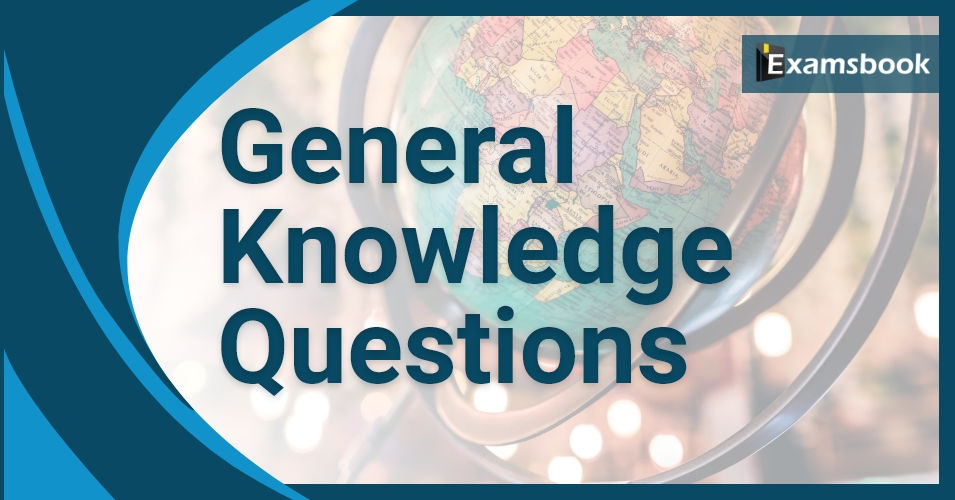General knowledge questions and answers for competitive exams (Part: 2)

According to Indian constitution, Right to life is –
(A) Political right
(B) Economic right
(C) Fundamental right
(D) Religious right
Correct Answer : C
Explanation :
Right to life is a fundamental right under Article 21 of the constitution. The Right to life is a moral principle based on the belief that a human being has the right live and, in particular, should not be killed by another human being. The Concept of a right to life arises in debates on issues of capital punishment, war, abortion, euthanasia, justifiable homicide and by extension,public health care.
Which of the following is not a fundamental rights in Indian constitution-
(A) Right to equality
(B) Right to freedom
(C) Right to property
(D) Right against exploitation
Correct Answer : C
Explanation :
Right to property is a legal right under Article 300A. It was made a legal right by 44th Constitutional Amendment act 1978.
Which type of writ is not issued under Indian constitution-
(A) Mandamus
(B) Prohibition
(C) Injunction
(D) Certiorari
Correct Answer : C
Explanation :
There are five writs issued by courts in India- Habeas corpus, Certiorari, Mandamus, Prohibition, and Quo warranto.
Which one of the following fundamental rights was described by Dr. B.R. Ambedkar as the heart and soul of the Constitution?
(A) Right to religion
(B) Right to constitutional remedies
(C) Right to property
(D) Right to education
Correct Answer : B
Explanation :
Dr. B.R. Ambedkar described the right to constitutional remedies (Article 32) as the "heart and soul" of the Constitution. This right provides Indian citizens the freedom to approach the Supreme Court, the highest judicial body in the country, for the protection of their fundamental rights. It grants citizens the freedom to seek legal remedies when their fundamental rights are violated.
What is the status of the Right to Property now?
(A) Legal Right
(B) Human Right
(C) Fundamental Right
(D) Natural Right
Correct Answer : A
Explanation :
The Right to Property in India is recognized as a legal right under Article 300-A of the Indian Constitution. It means that individuals have the right to own and use property, and they cannot be deprived of their property except by authority of law. However, it is no longer a fundamental right, which means that the government can impose reasonable restrictions on property ownership. While individuals have legal protection for their property, it is subject to certain limitations defined by law.
How many fundamental duties of Indian citizens are there in the Indian Constitution, as of March 2022?
(A) 5
(B) 11
(C) 9
(D) 3
Correct Answer : B
Explanation :
As of my last update in September 2021, there are 11 fundamental duties of Indian citizens mentioned in the Indian Constitution. These duties were added by the 42nd Amendment Act in 1976. However, it's important to verify with up-to-date legal sources because constitutional amendments can occur, potentially changing the number or content of these duties after my last update.
The feature of Fundamental Rights in the Indian Constitution is borrowed from the Constitution of _______.
(A) Australia
(B) Britain
(C) Ireland
(D) United States of America
Correct Answer : D
Explanation :
The feature of Fundamental Rights in the Indian Constitution is borrowed from the Constitution of the United States of America. The Fundamental Rights in the Indian Constitution, as outlined in Part III (Article 12 to 35), are similar to the Bill of Rights in the U.S. Constitution.
The state legislative assembly has a strength of ____, with exceptions for smaller states.
(A) 600 to 1000
(B) 60 to 500
(C) 50 to 400
(D) 10 to 100
Correct Answer : B
Explanation :
The state legislative assembly in India has a strength of 60 to 500 members, with exceptions for smaller states. The number of members varies from state to state based on their population.
Which article of Indian constitution deals with discrimination against any Indian citizen on various grounds?
(A) Article 11
(B) Article 19
(C) Article 13
(D) Article 15
Correct Answer : D
Explanation :
Article 15 of the Indian Constitution deals with the prohibition of discrimination against any citizen on grounds of religion, race, caste, sex or place of birth. It states that the State shall not discriminate against any citizen on grounds only of religion, race, caste, sex, or place of birth.
Which Article of the Indian Constitution empowers a High Court to issue writs for the enforcement of the Fundamental Rights of the citizens?
(A) Article 226
(B) Article 242
(C) Article 230
(D) Article 235
Correct Answer : A
Explanation :
Article 226 of the Indian Constitution empowers High Courts in India to issue writs, including habeas corpus, mandamus, prohibition, quo warranto, and certiorari, for the enforcement of the fundamental rights of the citizens as well as for any other purpose. This article grants the High Courts the power to protect and enforce fundamental rights in their respective states.



